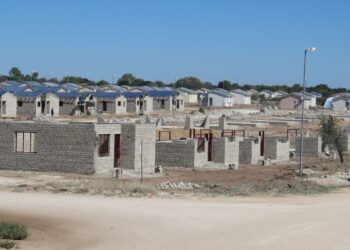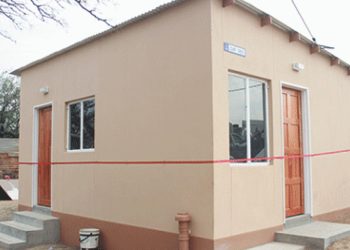
Buying a property is not as simple as signing an agreement, paying the purchase price, and getting your keys. It involves a lengthy process that can take between 4-6 weeks.
Transferring a property from one entity/person to another is called the “Transfer processâ€.
Once the property is transferred and registered, the owner acquires a real right to immovable property, which can be regarded as indisputable. This is further entrenched by Constitutional rights protecting such property ownership. One must enlist a conveyancer’s services to transfer their property from seller to buyer. A conveyancer is an attorney qualified and authorised to prepare and execute documents in the Deeds Office. He/she is also personally responsible for ensuring that the terms, obligations, and finances relating to the transaction are strictly adhered to. The conveyancer must attend to these details and can be held personally responsible in the event of a faulty transfer.Â
Below is a summary of the Namibian Conveyancing Process:
1.Accepted deed of sale
The transfer process is initiated by way of a signed and accepted Deed of Sale of land as required by the Formalities in Respect of Contracts of Sale of Land Act 1969, which stipulates that no agreement of sale of land will be valid unless reduced to writing and signed by both parties.
2.Deeds search
A conveyancer searches in the Deeds Office in Windhoek or Rehoboth to obtain the correct description of the registered owner and the property and any restrictive conditions or servitudes attached to it.
3.Drafting Transfer documentation
A conveyancer collects required documentation and drafts transfer documents. These documents include a power of attorney to transfer, transfer duty application form, transfer duty declarations for both seller and purchaser, Insolvency affidavits for all parties, Financial Intelligence Act (FIA) information sheets (which include IDs, Marriage Certificate/Divorce Order (if applicable), Proof of Residence, Bank Account Confirmation Letter and Income Tax Certificate) as well as a statement of transfer cost with provisions for (i) stamp duties and (ii) transfer duties. Conveyancing fees are calculated according to a tariff determined by the Government of Namibia. These fees are prescribed in a Government Gazette and cannot be adjusted by specific law firms or conveyancers.
4.Bond cancellation
A conveyancer will request “Bond Cancellation Figures†if a bond is registered over the Property by the Seller. This ensures that the new owner buys a property without any existing debt.
5.Finance
A conveyancer should also oversee the finances of a transaction. In most cases, the purchaser will have applied for a bond to finance the property. The conveyancer will request the necessary undertakings from the purchaser’s bank and ensure that guarantees are issued to pay the purchase price. Or, if it is a cash buyer, the buyer will pay the funds into the conveyancer’s trust account.
6.Building compliance certificate
A conveyancer will request the seller to provide a building compliance certificate.
 7.Lodgement and Registration
A conveyancer will draft a new title deed and have the current bond cancelled to ensure the new bond is registered simultaneously. Once the transaction has been registered at the Deeds Office. The conveyancer will attend to the payment of the Estate Agent’s Commission (if applicable), outstanding water and electricity fees, Bond Cancellation Figures (if applicable) etc. Once those payments have been made, the conveyancer will pay the remainder of the Purchase Price to the Seller. He/she will also dispatch the original Deed of Transfer to the relevant party (Bank if there is a Bond/Purchaser if it is a cash transaction).
The tasks listed above is the reason we pay for Transfer costs, a large portion of that is Transfer Duties, but the rest is payment to the conveyancer to ensure that your property is safely transferred and to guard against the risk of an incorrect title deed as errors in registration are costly to rectify.Â
For enquiries Text, Call or email #yourhomegirl Justina Hamupembe
Cell: +264812726001
Email:Â Justina@chili.com.na











